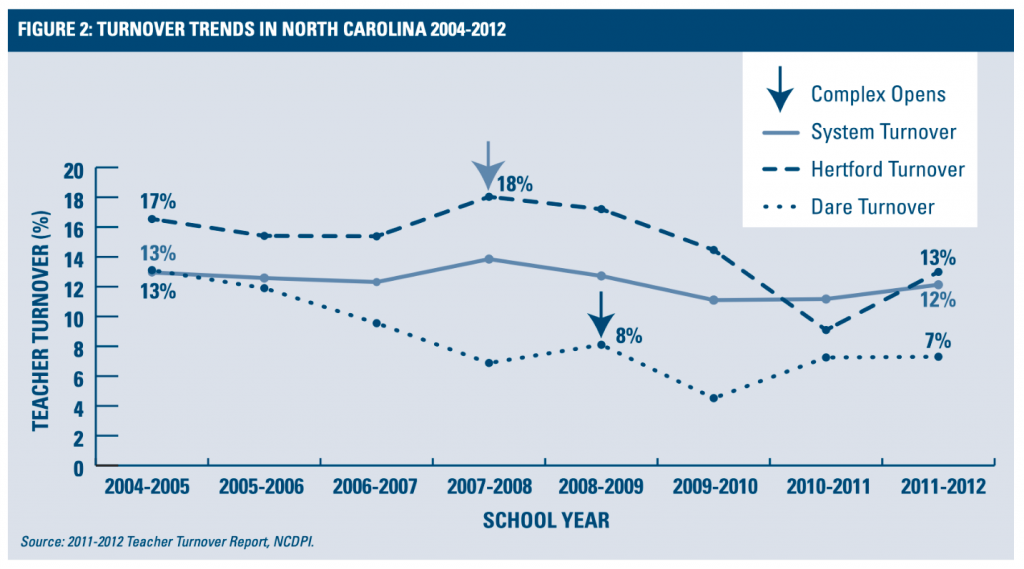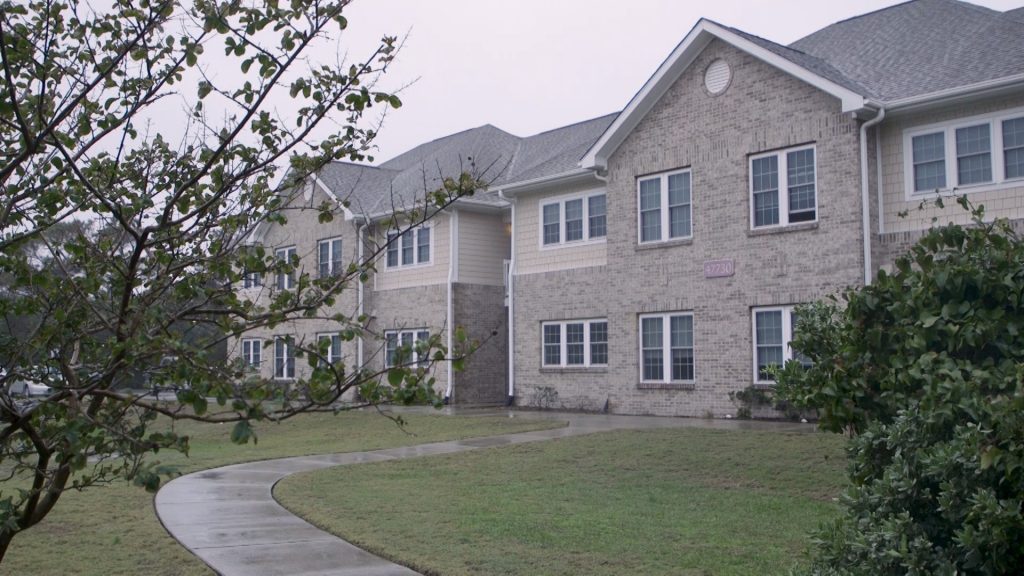Affordable Teacher Housing – Dare County
Since teacher pay in North Carolina is generally based on years of experience, many monetary incentives for teacher recruitment and retention are not particularly effective or sustainable. Therefore, other types of incentives, like affordable housing guarantees, can be a tool for school systems that struggle with turnover and/or local housing affordability.

The Challenge
Recruiting and retaining teachers are difficult tasks for many school districts in North Carolina. Many offer salary supplements to recruit and retain employees, but others are going beyond that to provide affordable housing for teachers in their communities. Research indicates that teacher salaries do not keep pace with rising housing costs in many parts of North Carolina, leaving many teachers unable to afford housing in the community where they work. These conditions force them to live farther from work, resulting in increased commuting time and transportation costs, or to seek work in another community with better opportunities. In a Reach NC Voices statewide survey of public school teachers, the majority (60%) of teachers who responded indicated affordable housing is a barrier to teaching in their district. Almost half report paying more than the recommended 30 percent of their income on housing.
In Dare County, teachers and other public employees are often unable to afford housing on their incomes. “That’s one of the wealthiest counties in the state. Except for all the wealth is from out-of-state beach house owners. The teachers and firemen and the policemen have to live outside the area. They can’t afford the rents,” says Jim Blaine, president of the State Employees Credit Union. This challenge can lead to teacher turnover, which means that students are more likely to be taught by less experienced teachers and have diminished educational outcomes. These effects are particularly true for low income and minority students, who are disproportionately assigned to novice teachers, widening the already significant achievement gap in many communities.
The Solution
Since teacher pay in North Carolina is generally based on years of experience, many monetary incentives for teacher recruitment and retention are not particularly effective or sustainable. Therefore, other types of incentives, like affordable housing guarantees, can be a tool for school systems that struggle with turnover and/or local housing affordability. The State Employees Credit Union worked with community partners in several counties across North Carolina to provide funding for teacher housing in counties and towns with limited rental units and expensive housing costs. They provide no-interest loans that the community partners pay back through the rent earned. After the loans are paid back, community partners are able to use the funds for the advancement of community goals.
In Dare County, these loans are used to provide affordable teacher housing units in Kill Devil Hills and Cape Hatteras. There are currently two such complexes: Run Hill Ridge, a 24-unit complex in Kill Devil Hills (built in 2008) and Hatteras Teacher Housing, a 12-unit building in Buxton (built in 2011). These 2-bedroom, 2-bath units rent for $850 per month, prioritizing teachers and school leaders, but are also available to anyone employed by Dare County Schools (DCS), Dare County, or the state or federal government if the units are not filled. Additionally, DCS implemented a beginning teacher support plan, which guarantees not only affordable housing for the first four years of teaching, but also additional instructional mentoring and support to encourage professional development and retention.
Although not enough to establish causality, the opening of teacher housing complexes in Hertford and Dare Counties seems to have positively impacted teacher turnover rates.
The Players
This collaboration is funded by the State Employee’s Credit Union Foundation, partnering with the Dare Education Foundation. The complexes are funded with a no-interest loan from the SECU Foundation, which allows for their construction and other upfront costs. After the loan is repaid through rent collected over time, additional revenues will help the foundation support Dare County Schools. Both complexes are owned by Dare Education Foundation, allowing them to have a long-term investment to recruit and house new teachers.
The Promise
This program has been successful in recruiting more teachers to Dare County and reducing the amount of turnover experienced by Dare County Schools. There are factors that other communities may want to consider before implementing this program. One is the availability of permanent, affordable housing for teachers to rent or purchase in order to continue to use these sorts of complexes for recruitment. For example, Dare County is now enforcing a four-year time limit on this program’s leases. “The original purpose of the housing units was temporary housing for teachers…a gateway into finding other places,” Dare County Schools (DCS) Digital Communications Director Keith Parker said. But he said in some cases the teacher housing units, “have become more permanent scenarios. The original mission was as a recruiting tool.” This permanent transition to other housing will depend on local housing availability and affordability, which varies widely in North Carolina communities.



